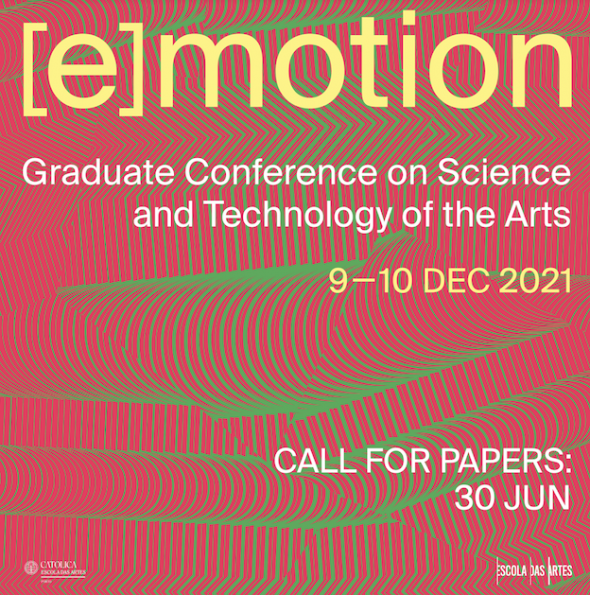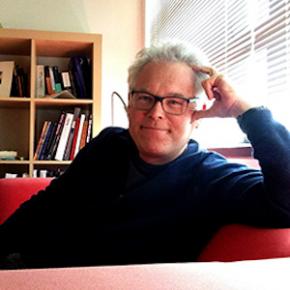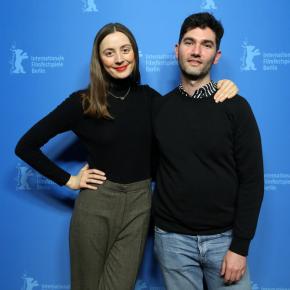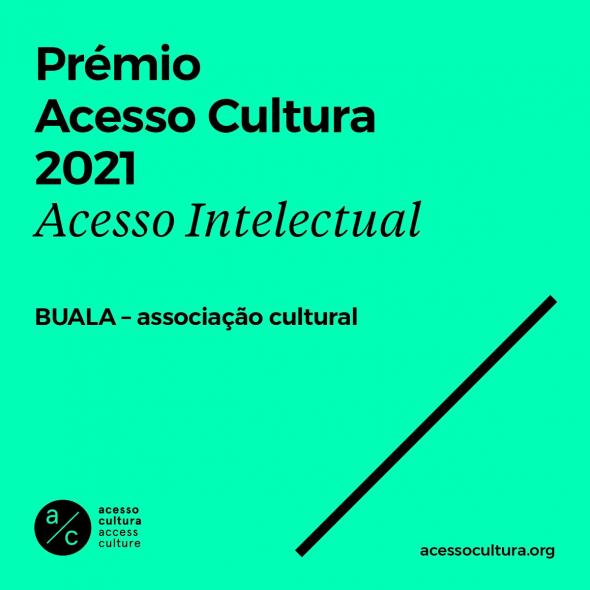 Keynotes
Keynotes
List of Confirmed Keynotes and Artist talk
More to be announced soon
 Doug Bailey
Doug Bailey
Doug Bailey (PhD, Cambridge, 1991) is a visual archaeologist at San Francisco State University in California. Doug’s early research and teaching focused on European prehistory and prehistoric art; he ran survey and excavation projects in Bulgaria and Romania and published widely on the Neolithic period (6500-3500 cal BC), architecture and settlement, and anthropomorphic figurines. His Balkan Prehistory: Incorporation, Exclusion and Identity (Routledge, 2000) and Prehistoric Figurines: Representation and Corporeality (Routledge, 2005) are now classic texts in their fields. His 2010 book and exhibition, Unearthed (Sainsbury Center, Norwich), radically attacked traditional approaches to the publication and museum presentation of prehistoric art.
Currently, Doug is developing the new field of art/archaeology in which archaeologists, artists, and others create work that goes far beyond traditional academic boundaries (for examples see www.artarchaeologies.com). Doug’s art/archaeology output includes alternatives to traditional archaeological narrative (e.g., visually provocative chapter-montages) and his recent book Breaking the Surface: an Art/Archaeology of Prehistoric Architecture (Oxford, 2018).
With Sara Navarro, he co-curated the exhibition Creative (un)makings: disruptions in art/archaeology at the International Museum of Contemporary Sculpture in Santo Tirso (March-September 2020); his new show Releasing the Archive opens on January 19th at Carpintarias de São Lázaro in Lisbon. At San Francisco State University, Doug teaches the history and theory of archaeology, the archaeology of prehistoric and ancient art, and visual anthropology. For more information see http://anthropology.sfsu.edu/people/faculty/douglass-bailey.
 Sasha Litvintseva & Beny Wagner
Sasha Litvintseva & Beny Wagner
Conjuring the Perceptible Unknown is a long-term research and production project created together with Beny Wagner that is unfolding over a series of films and essays.
Our collaborative practice as filmmakers and researchers has often centered on certain nodes in histories of science to act as prisms for questions we have surrounding the threshold between the body its surroundings, knowledge regimes and power, modes of organizing and perceiving the natural world. While both science and documentary films are often thought to uncover preexisting truths, our work takes as its point of departure an understanding that both non-fiction filmmaking and scientific research coproduce the realities they observe. Following an onto-epistemological view of scientific knowledge production, experiments can only measure the realities in which they intervene. Scientific concepts exemplify this, being thought by the historian of science Georges Canguilhem to be ideas, experiments, and projections that conjured phenomena into being. For us, all moving image, fiction and nonfiction, operates on a comparable paradigm, reconfiguring the physical world into new perceptual frameworks. Beyond discussions of the interventionist nature of documentary we view all moving image production is always manifesting something yet to be seen or known. Working from within the history of science our broader aim as filmmakers is not to depict certain episodes in the history of science but rather to cross pollinate these two fundamental systems of world organization towards developing new perceptual models. Both science and moving image have, throughout history, primarily served as tools through which to measure life forms and thus make them more predictable. As we navigate an era defined by ecological crises, our aim is to subvert the quantitative functions of these two systems towards the production of films that materialize the radical openness and ecstatic uncertainty intrinsic to life.
Forthcoming: Constant, is currently in production and is supported by Medienboard Berlin-Brandenburg.
Related films: A Demonstration
Bilateria
Related writing: Monster as Medium: Experiments in Perception in Early Modern Science and Film
Never Odd or Even - on Palindromes and Metaphors

Call for Papers
Deadline for submissions: June 30th 2021
Acceptance notification: 31st July 2021
Our relationship with the body and the material world has been transforming following processes of digitalization that were in motion before COVID-19 but, as consequence, were potentially accelerated. It is urgent to foster research on what is the place for physicality and (i)materiality in our time. In this context, the 1st Graduate Conference on Science and
Technology of the Arts will focus on the intertwinement of notions of motion and emotion through interdisciplinary approaches from and towards the arts and/or heritage. Please see below detailed descriptions of these fields.
Contributions from the fields of Artistic Practices (Cinema, New Media Art, Digital Art, Music and Sound in particular), Artistic Studies and Cultural Studies, Heritage Studies and Conservation and Restoration are welcome, in multiple formats: papers, performances, artworks and installations, posters, audio-visual and digital essays.
This conference aims to explore and discuss works covering the following themes/topics:
1-[e]motion
It is through our bodies that we understand ourselves, others, the lived world (Merleau-Ponty, 2002). Significant relationships established between body and environment underpin perceptual and affective experiences from which individual concepts, prepositions, and discourses, grow. Physical impressions are blended with cognitive processes as we think, understand, feel through our living (moving!) bodies, as claimed by embodied cognition theories (Varela et al., 2016; Leman, 2016).
In this domain we aim to focus on the role bodily movement assumes as expressive/emotion inducer and mediator of physical and virtual experiences, evoking the concept of motion as a link between past, present, and future, which unfolds in space and time upon the succession of previous positions, and is common to all living forms. Research and artworks centred in motion, emotion, technology, as well as their intertwinements are encouraged, in line with the following topics:

2-commotion
The acceleration of the processes of digitalization, in its present condition, leads to a social acceleration that is responsible for the compression of the present (Rosa, 2013), towards a state of constant and non-stop production (Crary, 2018). The contemporary overexposure to information and images causes innumerous cognitive and emotional transformations (Stalder, 2018), following the project of an economic system based around the production of isolation (Debord, 1967).
With the increase of screen time, propelled by addictive content and algorithms that foster the visibility of emotional and controversial content, our consciousnesses (and our data) become the main asset of the attention economy. Therefore, our ability to develop and engage with communitarian and collective structures and relationships is reduced. At the same time, following Stiegler (2018) proposal of the technological pharmakon, technology might provide the tools and perspectives to critically transform its negative impact into a critical practice of education and resistance. Theoretical proposals and artworks that critically analyse the digital commotion and/or propose forms to expand the forms of contemporary experience, e.g. according to the following topics:

3-onward motion
The disturbances caused by the COVID-19 pandemic had a significant impact on multiple sectors of activity worldwide, including arts and culture. Either by exposing underlying fragilities or by questioning established practices, the pandemic forced museums and other cultural institutions to reconsider audience and public engagement, both online and offline (Grupo de Projeto Museus no Futuro, 2020). Faced with a bleak scenario regarding the recovery of international tourism – a force that has been placed at the heart of growth strategies in its association to cultural heritage (Waterton, Watson, Silverman, 2017) – the focus was shifted to national and local publics. Even so, the acceleration of processes of digitalization, potentialized by the pandemics, resulted in the accentuation of socioeconomic inequalities, behind issues of technology and internet accessibility, affecting cultural and civic participation. Nevertheless, the online pandemic enabled the discussion of emergent topics, at a global level, such as climate change, gender and racial inequality, and (post)colonialism, revealing inherent tensions between cultural localisation and delocalisation processes. Moving forward pandemic times, how can cultural institutions support equality and representation from/within increasingly glocal communities (Robertson, 1995; Gikandi, 2001)? What can be the role of artists and a growingly number of different heritage practitioners (Clark, 2019) to promote participation, inside and outside physical spaces? How can (cultural) heritage contribute to social and economic resilience through the promotion of sustainable practices (Culture 2030 Goal Campaign, 2019)?
We encourage discussion through the submission of essays, papers, case-studies, practice-based research and/or artworks related to the following topics:

References
Conferência de Porto Santo (2021). Carta de Porto Santo. Ministério da Cultura. https://www.culturacentro.gov.pt/media/11842/pt-carta-do-porto-santo.pdf
Clark, K. (2019). Further Exploration: Ten Principles of Values-Based Heritage Practice. In P. M. Messenger & J.S. Bender (Eds.), History and Approaches to Heritage Studies (pp. 150-153). University Press of Florida.
Culture 2030 Goal Campaign. (2019). “Culture in the Implementation of the 2030 Agenda”. Published in Barcelona, Paris, Harare, Sydney, Montreal, The Hague and Brussels, within the context of the first United Nations Sustainable Development Goals Summit on 24-25 September 2019. https://www.ifla.org/files/assets/hq/topics/libraries-development/documents/culture2030goal.pdf
Debord, G. (2002). The society of the spectacle (Perlman, Trans.). Black & Red. (Original work published 1967).
Gikandi, S. (2001). Globalization and the Claims of Postcoloniality. The South Atlantic Quarterly, 100(3), 627-658. https://www.muse.jhu.edu/article/30720
Grupo de Projeto Museus no Futuro. (2020). In C. Camacho, C. (org.), Relatório Final. Ministério da Cultura. http://patrimoniocultural.gov.pt/static/data/docs/2021/02/15/RelatorioMuseusnoFuturo.pdf
Hartmut, R. (2013). Social Acceleration: A New Theory of Modernity. Columbia University Press.
Leman, M. (2016). The expressive moment: how interaction (with music) shapes human empowerment. MIT Press.
Merleau-Ponty, M. (2002). Phenomenology of Perception. In Central Works of Philosophy Volume 4: The Twentieth Century: Moore to Popper. Routledge.
Robertson, R. (1995). Glocalization: Time-Space and Homogeneity-Heterogeneity. In M. Featherstone, S. Lash, and R. Robertson (Eds.), Global Modernities (pp. 25-44). Sage Publications.
Silverman, H.; Waterton, E.; Watson, S. (Eds.). (2017). Heritage in Action – Making the Past in the Present. Cham: Springer.
Stalder, F. (2018). The digital condition. Polity Press.
Stiegler, B. (2018). The neganthropocene. Open Humanities Press.
Varela, F. J., Thompson, E., & Rosch, E. (2016). The Embodied Mind: Cognitive Science and Human Experience (Revised Edition). MIT Press.
Disclaimer: Due to COVID-19 pandemic, this event may take a hybrid format. Any changes to the program will be communicated by the event’s Organizing Committee in due course, according to the evolution of the global pandemic situation.


 Doug Bailey
Doug Bailey Sasha Litvintseva & Beny Wagner
Sasha Litvintseva & Beny Wagner




